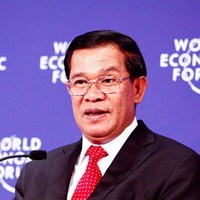What was widely expected to be an electoral victory last July for the ruling Cambodian People’s Party (CPP) has turned into a prolonged political impasse, as the opposition Cambodian National Rescue Party (CNRP) has refused to recognize the election results due to what it calls massive fraud. While continuing to boycott the National Assembly, the CNRP—which won 44.4 percent of votes and 55 seats, compared to the CPP’s 48.8 percent and 68 seats—has led a series of mass protests with three demands: an independent investigation into the alleged electoral fraud with the participation of the United Nations and civil society groups; new elections; and the resignation of longtime Prime Minister Hun Sen if the first two conditions are not met.
For more than a decade, Cambodia’s politics and economy have been undergoing rapid transformation brought about by global and regional economic integration. Though beneficial to Cambodia in many respects, this integration also permitted local and foreign companies to exploit the country’s cheap labor and natural resources. A free market economy coupled with widespread corruption, weak rule of law and cronyism has produced frequent incidents of land grabbing, evictions and denial of access to land once viewed as community property. Meanwhile, according to union leaders, corruption is driving down wages in the garment sector as high informal payments limit companies’ ability to raise workers’ wages. These issues, combined with discontent over restricted freedom of speech as well as anti-Vietnamese sentiments, have driven the CNRP’s popularity.
Presiding over a peaceful country with sustained economic growth, the CPP, under longtime Prime Minister Hun Sen, is convinced that Cambodia’s future rests on the principles of developmental authoritarianism, according to which economic development takes precedence over civil and political liberties. However, unlike Taiwan and South Korea in their pre-democracy eras, and unlike Singapore today, Cambodia’s developmental authoritarian regime has ignored social injustice and inequality. This has spawned massive discontent, especially among youth, who have little memory of Cambodia’s violent past. Hopes that the elections would help redress their grievances were dashed by the alleged electoral fraud. Capitalizing on popular disillusionment, the CNRP has transformed protests over the election into wide-ranging demands for change.

